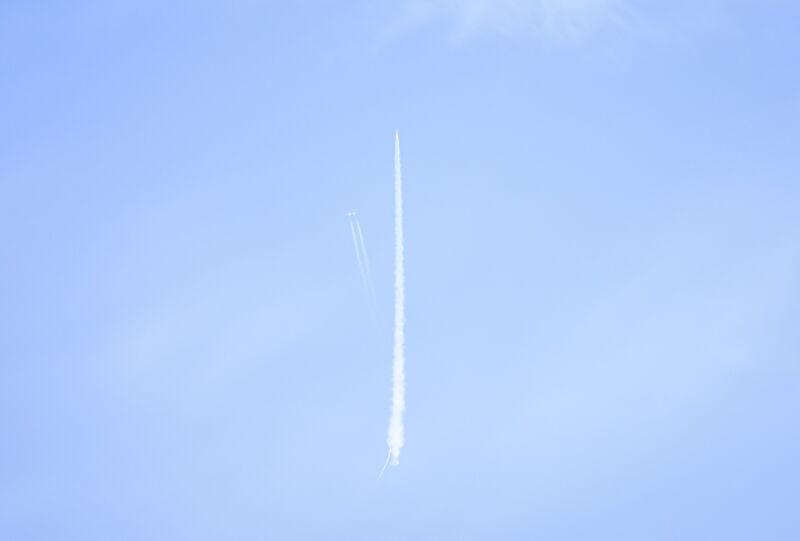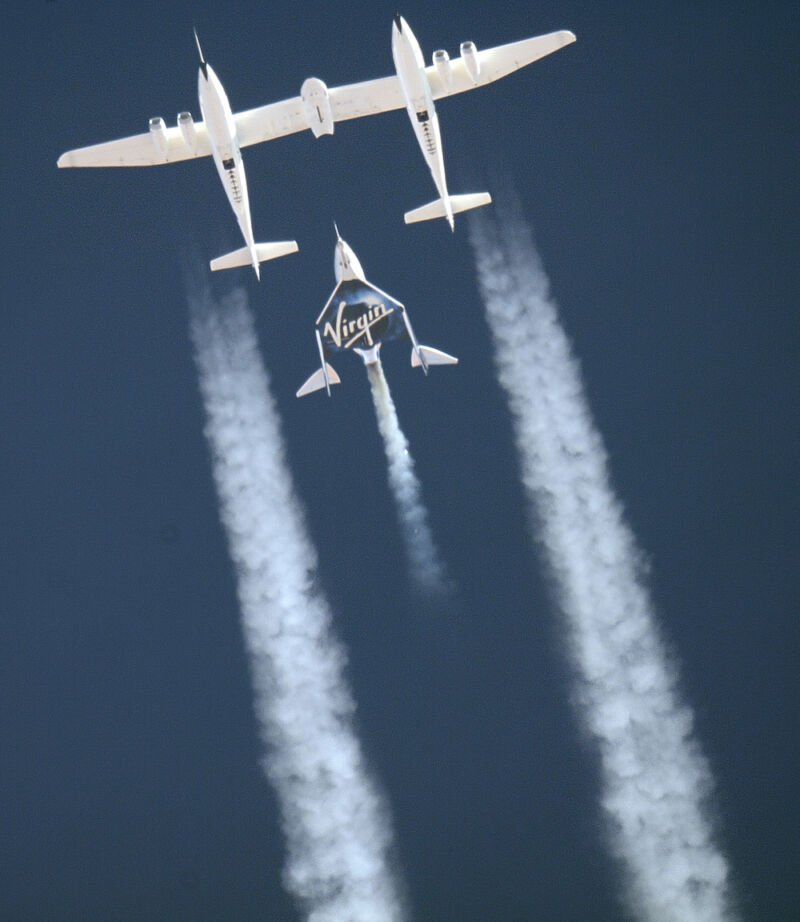Virgin Galactic has ceased flying its only space plane. Now what?

Enlarge / Virgin Galactic's VSS Unity spacecraft launches on Saturday. (credit: Virgin Galactic)
On Saturday, the VSS Unity space plane made its final flight, carrying four passengers to an altitude of 54.4 miles (87.5 km) above the New Mexico desert. The spacecraft will now be retired after just seven commercial space flights, all made within the last year.
Although the flight was characterized by its chief executive Michael Colglazier as a "celebratory moment" for Virgin Galactic, the company now finds itself at a crossroads.
After an impressive but brief flurry of spaceflight activity—seven human spaceflights in a year, even to suborbital space, is unprecedented for a private company—Virgin Galactic will now be grounded again for at least two years. That's because Colglazier and Virgin Galactic are betting it all on the development of a future "Delta class" of spaceships modeled on VSS Unity.


